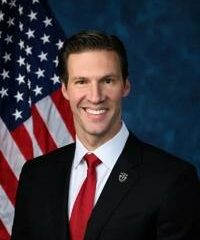News from the South - Louisiana News Feed
Trump administration funding freeze of $27B clean-energy program strands local projects
by Allison Prang, Louisiana Illuminator
April 5, 2025
WASHINGTON — A multibillion-dollar Environmental Protection Agency program designed to spur investment in energy-efficiency improvements nationwide is tied up in a legal battle that threatens to upend planned projects across the United States focused on affordable housing, the adoption of electric vehicles and more.
The EPA last month said it was terminating grants tied to the $27 billion Greenhouse Gas Reduction Fund, a program Congress created as part of the 2022 Inflation Reduction Act, “based on substantial concerns regarding… program integrity, the award process, programmatic fraud, waste, and abuse, and misalignment with agency’s priorities.” President Joe Biden signed the act into law.
Funds had already been dispersed into awardees’ bank accounts at Citibank as part of the program.
But the Trump administration, according to a document shared related to the lawsuit, directed Citi to freeze activity on those accounts. As a result, organizations around the country either already awarded money or in advanced talks to obtain funding are unable to access capital for planned projects.
The projects run the gamut, focusing on anything from installing energy-efficient technology in affordable housing units with the aim of lowering residents’ utility bills to adding solar panels to schools.
“There will be … very real capacity constraints if the funding is frozen indefinitely,” said Kari Groth Swan, executive director of the Minnesota Climate Innovation Finance Authority, a state body that finances clean-energy projects.
Groth Swan’s organization was awarded $25 million from the Coalition for Green Capital, one of the groups allocated funding from the Greenhouse Gas Reduction Fund.
Seeding energy-efficiency projects
The goal of the fund is to catalyze investment in energy-efficiency technology and other initiatives to reduce greenhouse gases.
“We loan it out, we get it back, we do it again,” Groth Swan said. “It acts like a revolving loan fund.”
The Minnesota Climate Innovation Finance Authority is one of many betting on funding from the Greenhouse Gas Reduction Fund to help get these projects off the ground. Organizations have been relying on this money to further pad much larger funding pools that include capital from outside investors.
In Minnesota, for example, the $25 million the Minnesota Climate Innovation Finance Authority was awarded from the federal program makes up about one-fifth of the capital Groth Swan is planning to go toward a host of projects.
They include making an old school that’s being turned into a workforce development site more energy efficient and putting solar and storage technology on schools in north Minneapolis to keep the lights on during severe weather, according to Groth Swan.
Her organization also plans to loan money to an ice hockey arena for a new electric cooling system so it can stop using a toxin the EPA wants ice rinks to get rid of, she said.
Suit to unfreeze funds
The Minnesota Climate Innovation Finance Authority is one of several organizations that last month sued both the EPA and Citibank over the freezing of money from the Greenhouse Gas Reduction Fund.
The fund drew ire from Republicans long before President Donald Trump’s return to the White House. Democrats, who held majorities in both chambers of Congress and the White House in 2022, passed the law creating the program without any Republicans supporting it.
After Trump’s return to office, his EPA said it was terminating $20 billion in grants from the fund, and recipients sued to retain the funding.
A federal judge last month ruled that Citibank couldn’t move any of the federal funding in question out of the accounts, stating that the agency hadn’t provided “credible evidence” that there was “waste, fraud, or abuse” associated with the grant agreements.
When an attorney for the Department of Justice was asked in court last month whether he could provide evidence that the law had been violated through conflicts of interest or fraud, the attorney said he did not have that. The attorneys listed as representing the EPA didn’t respond to a request for comment and an EPA spokesperson said in an email that it doesn’t comment on pending litigation.
The court on April 2 held a hearing over the plaintiffs’ request for a preliminary injunction, but a judge has yet to hand down a ruling.
Citibank did keep the money in awardees’ accounts, said Brooke Durham, a spokesperson for Climate United, one of the funding awardees and plaintiffs in the lawsuit. But one thing Durham and others expressed concern about is the uncertainty surrounding the Greenhouse Gas Reduction Fund money affecting other investors in these projects.
“There are a lot of people counting on these investments across the field all the way from developers to community lenders to private capital,” Durham said.
Citibank declined to comment.
EPA Administrator Lee Zeldin, on the same day the judge issued a temporary restraining order, addressed the Greenhouse Reduction Fund in a post on the social media platform X, alleging the grants were “riddled with self-dealing and wasteful spending.”
“I will not rest until these hard-earned taxpayer dollars are returned to the U.S. Treasury,” he said in the post.
A letter from the EPA to the agency’s inspector general last month raised concerns with the structure of the grant awards and bank account agreements and alleged that a grant awarded to a Biden official’s former employer violated conflict-of-interest standards.
EPA Administrator Lee Zeldin attends a meeting with President Donald Trump and NATO Secretary General Mark Rutte in the Oval Office on March 13, 2025. (Photo by Andrew Harnik/Getty Images)
Seeking alternatives
The temporary restraining order hasn’t stopped potential funding recipients from trying to find alternative funding to keep their projects going.
Megan Lasch, owner and president of Texas-based affordable housing organization firm O-SDA Industries, said her organization was going through the process to get $4 million in funding from one of the groups already given funding from the Greenhouse Gas Reduction Fund for a $30 million affordable housing renovation in southwest Fort Worth.
The project is focused on renovating 116 homes, most of which are two and three-bedroom units. Lasch’s company is aiming to lower residents’ utility bills by installing things like energy-efficient light fixtures and more efficient heating and air-conditioning systems.
“It’s really important dollars that a lot of developers, real estate professionals are utilizing in their capital stack to help create and preserve affordable housing,” Lasch said.
Lasch said her firm called in a favor from another nonprofit organization as a “Hail Mary” to get a loan to fill a potential void from the federal money O-SDA was counting on, but the plan is to pay the organization back. She’s not optimistic other projects will be able to move ahead without the federal funding, though, she said.
“I think there’s going to be several developments that just don’t happen because there’s not another source that can get some of these deals done now,” she said.
Rising costs for consumers
Similarly to Lasch, Homewise, a housing-focused developer and financial firm based in New Mexico, was also working on procuring money from different programs under the Greenhouse Gas Reduction Fund and had moved forward in the due diligence process, according to deputy CEO Johanna Gilligan.
Gilligan said she hopes that either the state or philanthropic organizations could step in to help fill the funding void.
Homewise’s plan is to use the money for a program to help low- to moderate-income homeowners in big cities like Albuquerque and Santa Fe reduce their utility expenses by undertaking energy-efficiency upgrades, she said.
As part of that program, Homewise sends representatives out to people’s houses to help them understand where they’re losing energy and how they could lower their costs. That person might explain what tax credits or rebates people can use, Gilligan said. She described the program as “a one-stop shop for energy-efficiency improvements” and said the goal of the organization is to make these processes simpler for everyday people to understand.
“That’s the real loss here,” she said. “For working-class people and those who are contributing significantly to the economy, often … this change makes it harder to help those folks to in turn be able to improve their homes and save money on their bills.”
Robert Sheppard, the co-founder of Vital Housing, an affordable housing investment firm that does work in the Pacific Northwest, said his firm was awarded a 3% interest loan from one of the organizations awarded funding from the Greenhouse Gas Reduction Fund. The plan is to use the $1.5 million loan to reduce carbon emissions and energy use in an affordable housing project in Portland, Oregon, to limit residents’ utility costs.
“We don’t have a source to replace the financing at this point,” said Sheppard, who has raised a total of $24 million for the project. Without the federal funding, residents would see higher energy costs, he said.
“We would not do the work that is scheduled to be done, which would leave carbon exposure and maintain energy costs at a level that is above where it should be for the residents and the building,” he said.
Dollars aside, some of the recipients of the federal money expressed concern that even if the funds do become available for withdrawal again, the agency’s posture toward the program could still be problematic for them.
“We can win the battle of getting the funds unfrozen but we still (have) to make sure that we have a(n) EPA that understands the value of our mission and our mandate,” Minnesota’s Groth Swan said.
Last updated 2:19 p.m., Apr. 4, 2025
Louisiana Illuminator is part of States Newsroom, a nonprofit news network supported by grants and a coalition of donors as a 501c(3) public charity. Louisiana Illuminator maintains editorial independence. Contact Editor Greg LaRose for questions: info@lailluminator.com.
The post Trump administration funding freeze of $27B clean-energy program strands local projects appeared first on lailluminator.com
News from the South - Louisiana News Feed
Someone paid $2,138 for a reservation at a French Quarter restaurant. Should this be outlawed?
by Wesley Muller, Louisiana Illuminator
April 6, 2025
People are buying and selling table reservations at iconic New Orleans eateries for eye-popping amounts via third-party websites, often without the restaurant’s knowledge.
Critics want lawmakers to ban the burgeoning online business they consider a racket, arguing that it undermines the fine-dining experience and could potentially leave restaurants with empty tables. However, proponents of the practice say it benefits both diners and restaurants when done properly.
Some iconic restaurants topped the list during a recent scan of the New Orleans section of Appointment Trader, one of several platforms designed to let people with scheduling conflicts sell highly coveted reservations on the open market. A Saturday night reservation at Brennan’s later this month is available for a suggested bid of $235 — a discount compared to the whopping $2,138 someone paid for a four-top at Antoine’s during the Super Bowl weekend.
Are those prices based on genuine demand for seating at the restaurants, or is it artificially inflated by technology built to cash in on wealthy tourists desperate to dine in the city’s elite culinary corners?
That’s a question Louisiana lawmakers will try to answer in the coming months as they consider House Bill 90, sponsored by Rep. Troy Hebert, R-Lafayette. The legislation could ban companies such as Appointment Trader, Dorsia and Wuw Wuw from operating in Louisiana.
GET THE MORNING HEADLINES.
Specifically, Hebert’s bill prohibits third-party companies from offering or arranging reservations at any restaurants that have not agreed to the service through a contract.
Hebert could not be reached for comment, but the Louisiana Restaurant Association, a trade group that asked Hebert to file the legislation, said it is modeled after similar laws recently enacted in other states such as New York. They all describe the legislation as a measure to prevent “restaurant reservation fraud.”
Appointment Trader, founded in 2021, lets users buy and sell reservations and appointments of all kinds through auction-style bidding. Sellers can set their own asking prices, and bidders can make offers at any rate. Additionally, prospective buyers can use the platform as a concierge service, offering a fee to any user who can secure them a reservation at a particular establishment.
In its early days, the platform was limited mostly to hotspots such as New York, Los Angeles, Chicago and Las Vegas. It has since gained popularity and expanded into smaller markets including New Orleans and virtually anywhere else one has a reservation they want to sell. As of Thursday, the platform had clocked over $6 million in trades within the last 12 months.
In a phone interview, Louisiana Restaurant Association spokeswoman Wendy Waren said platforms like Appointment Trader are selling reservations without the restaurants’ permission or knowledge. If no one buys the reservations, tables just sit empty, which can cause seating delays or prevent genuine customers from getting a reservation and actually bringing business to the restaurant, she said.
“It creates artificial scarcity,” Waren said. “It’s like somebody’s hijacking the process.”
‘Our backs are really against the wall’: New Orleans restaurants brace for new tariffs
New York hospitality trade groups have accused the platforms of using software bots to snap up reservations and sell them on what they call a “black market.”
Appointment Trader founder Jonas Frey said he is just trying to solve a problem with a legitimate service that can benefit all parties, particularly the restaurants. The 37-year-old software engineer is a German immigrant who came to the U.S. five years ago and came up with the idea for his platform while waiting in a long line at his local motor vehicles office in Las Vegas. He now lives in Miami with his wife and is serious about maintaining legitimacy on his platform, he said.
“I’ve basically lived in a computer all my life, and nothing gives me more joy — well almost nothing — than when thousands of people use the software I built to solve a problem in their life,” Frey said.
In phone interviews this week, Frey explained how users on his platform must sell at least half of the reservations that they post or risk account suspension. This prevents people from trying to book all the available tables and hoard them to create artificial demand. Also, the free-market style platform means that unsold reservations put downward pressure on the prices in a given area, he said.
The app is still quite new in the New Orleans market as there have only been a handful of transactions, so the current 90-day average bid prices have been skewed by reservations sold during special events such as the Super Bowl. Frey said those “one-offs” are not the norm.
In a market such as New Orleans, diners can typically get reservations without paying if it’s a normal weekend, but it can be next-to-impossible at certain restaurants in other cities. Reservation trading lets people sell valuable bookings that they, for whatever reason, can’t use or no longer want,
When someone has a coveted reservation but a scheduling conflict prevents them from using it, they might not bother calling to cancel, leading to what restaurants call “no-show reservations.”
Just a few no-shows can disrupt a restaurant’s operations and cost it thousands in lost sales. Approximately 28% of American diners have admitted to ghosting on their reservations, according to a 2021 OpenTable survey.
“Wouldn’t it be better for everyone if you could just resell it?” Frey asked.
Lisa Blount, director of marketing for Antoine’s, said she’s all in favor of entrepreneurs figuring out new ways to make money in the restaurant industry. She’s less worried about no-shows because Antoine’s requires credit cards to make reservations, but she does have a few other concerns.
At Antoine’s and other fine dining eateries, the staff take a lot of time to learn about their customers when they make a reservation, Blount said. They might be on a tight schedule, have diet restrictions or could be visiting for a special occasion. This kind of information allows the restaurant to make preparations with food ordering, shift scheduling and other arrangements.
“There’s a lot more to coming to our restaurant than just buying a ticket,” Blount said. “We try to know a lot about you before you even get in the door.”
Blount said she worries that trading or selling reservations to unknown customers could stymie a restaurant’s ability to offer its best level of service. She also said she hates the idea of an unwitting customer paying for a reservation and then showing up and seeing empty tables because it turned out to be a slow evening. The customer would feel scammed, and it could damage the restaurant’s reputation, she said.
Still, Blount said she’s open to the concept of reservation trading if there are ways to control for those kinds of issues.
Frey said he is actively trying to partner with restaurants to make the app better for all parties. His platform currently takes a 30% cut of each transaction, and he offers partner restaurants an equal share of the net proceeds. So far, Frey said he has not landed any partnership agreements as he tries to keep his company alive through an onslaught of state legislation.
Seafood testers find Shreveport restaurants deceiving customers with foreign shrimp
Bans on reservation trading apps are already in place in New York and Arizona, and a similar bill is currently pending in the Illinois legislature.
Some large corporations could lose a chunk of their business if reservation trading catches on. Restaurant booking platforms such as OpenTable and Resy are free for customers to use. They make money by charging restaurants a fee for every reservation made through their app.
Platforms like Appointment Trader threaten to disrupt the online booking sector by flipping that business model on its head. Under Frey’s partnership model, restaurants would get paid just to let customers inside.
But all that depends on genuine demand existing in a particular market area.
“There’s so many restaurants here,” Blount said from her New Orleans office. “We’re not New York.”
YOU MAKE OUR WORK POSSIBLE.
Louisiana Illuminator is part of States Newsroom, a nonprofit news network supported by grants and a coalition of donors as a 501c(3) public charity. Louisiana Illuminator maintains editorial independence. Contact Editor Greg LaRose for questions: info@lailluminator.com.
The post Someone paid $2,138 for a reservation at a French Quarter restaurant. Should this be outlawed? appeared first on lailluminator.com
News from the South - Louisiana News Feed
KSAT highlights the excitement of Men’s Final Four Tip-Off Tailgate
SUMMARY: The Men’s Final Four Tip-Off Tailgate in San Antonio has generated significant excitement. Reporter Avery Everett highlights the vibrant atmosphere at Civic Park, where basketball festivities blend with fun activities. Attendees celebrate with live music and watch the games on a big screen. The tailgate features a merchandise booth, where fans can purchase San Antonio-themed items, and a bull-riding game. Many locals express pride in their city being celebrated, with food, entertainment, and camaraderie thriving. The event culminates with a concert across the street, creating a festive spirit for both basketball fans and San Antonio residents alike.

KSAT takes a look at what the Men’s Final Four Tip-Off Tailgate has to offer.
News from the South - Louisiana News Feed
Family remembers man killed on the Highway 11 Bridge
SUMMARY: City leaders in Slidell are advocating for repairs and funding for the Highway 11 Bridge following numerous fatalities, including the recent death of 47-year-old Farrell Pichon in a head-on collision. The community is appealing to the federal government for support, having applied for funding last Friday with hopes of expediting bridge construction. Pichon’s family, who recently commemorated what would have been his 48th birthday, is seeking justice, expressing dissatisfaction with the lack of serious charges against the driver responsible for the accident. Their call to action emphasizes the urgent need for improved safety on the bridge.

Family remembers man killed on the Highway 11 Bridge
Subscribe to WDSU on YouTube now for more: http://bit.ly/1n00vnY
Get more New Orleans news: http://www.wdsu.com
Like us: http://www.facebook.com/wdsutv
Follow us: http://twitter.com/wdsu
Instagram: https://www.instagram.com/wdsu6/
-

 Mississippi Today5 days ago
Mississippi Today5 days agoPharmacy benefit manager reform likely dead
-

 News from the South - Kentucky News Feed6 days ago
News from the South - Kentucky News Feed6 days agoTornado practically rips Bullitt County barn in half with man, several animals inside
-

 News from the South - Alabama News Feed5 days ago
News from the South - Alabama News Feed5 days ago'I think everybody's concerned': Mercedes-Benz plant eyeing impact of imported vehicle tariffs
-

 News from the South - Missouri News Feed7 days ago
News from the South - Missouri News Feed7 days agoThunderstorms drench areas south of St. Louis
-

 News from the South - Alabama News Feed6 days ago
News from the South - Alabama News Feed6 days ago41st annual Bloomin Festival Arts and Crafts Fair (April 5 & 6) | March 31, 2025 | News 19 at 9 a.m.
-

 News from the South - Florida News Feed5 days ago
News from the South - Florida News Feed5 days agoFlorida special election results: GOP keeps 2 U.S. House seats in Florida
-

 News from the South - South Carolina News Feed3 days ago
News from the South - South Carolina News Feed3 days agoSouth Carolina clinic loses funding due to federal changes to DEI mandates
-

 News from the South - Louisiana News Feed5 days ago
News from the South - Louisiana News Feed5 days agoMother turns son's tragedy into mental health mission











































